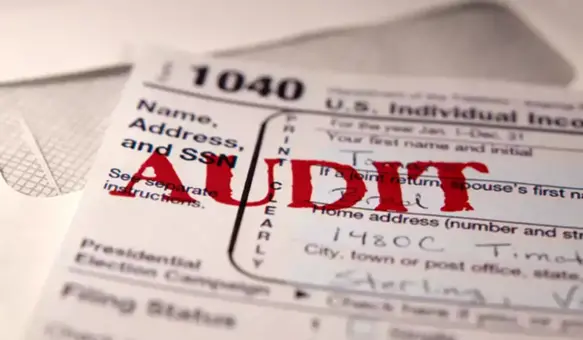A Tax Guide for Irish Expats in America

Ireland and the United States may be separated by thousands of miles of ocean, but the distance hasn't dulled the affection between the two nations. A study of the history and culture of the United States would not be complete without the contributions of the Irish people.
The Irish-American partnership stretches back to the birth of the United States. Irish immigration began in earnest during the colonial era and peaked in the 19th century. It is estimated that as many as 4.5 million Irish citizens left Ireland for America between 1820 and 1930.
Since then, the Irish people have made an indelible mark on American culture. Millions of people celebrate Saint Patrick's Day every year. Many influential Americans claim Irish roots, including Walt Disney, Grace Kelly, and Joe Biden.
This U.S. tax guide for aliens will tell you everything you need to know as an Irish expat, including your tax status, your tax forms, and what will happen to your assets in Ireland.
What does it mean to be an Irish resident alien
Irish expats that hold a Green Card or meet the Substantial Presence Test are considered U.S. Resident Aliens by the IRS. For resident aliens, the rules for filing income, estate, and gift tax returns and paying estimated tax are generally the same as for U.S. citizens.
It's important to note that Green Card holders still need to pay U.S. federal income taxes even if they are abroad during the tax year.
Tax status of immigrants and non-immigrants
There are two types of U.S. visas: immigrant and non-immigrant. Your tax status in America will depend on the type of visa you hold.
Immigrant visa
Irish citizens who wish to immigrate to the United States are typically granted an immigrant visa. This visa grants permanent residency within the U.S., and many Irish expats obtain an immigrant visa through employment or U.S.-based relatives who are also U.S. citizens or permanent residents.
For Irish expats with an immigrant visa, their tax obligations begin when they enter the country.
Non-immigrant visa
Non-immigrant visas only allow for a temporary stay within the United States. They are granted to students, tourists, researchers, and temporary workers. Diplomats, foreign military personnel stationed in the U.S., and employees of international organizations (e.g. United Nations, NATO) are also covered by this category.
Nonimmigrant visa holders only need to pay income tax on U.S.-sourced income. They also use non-resident tax forms to file a return.
How your residency status affects your taxes
Your length of stay in the U.S. also affects your tax obligations.
The Internal Revenue Service uses the Substantial Presence Test (SPT) to determine whether an Irish expat qualifies as a non-resident or resident for tax purposes. What does this mean for you?
Even if you have a nonimmigrant visa, you may be considered a U.S. resident for tax purposes if you meet the Substantial Presence Test. That means you're covered by the same tax rules that apply to U.S. citizens and permanent residents.
It's important to note that diplomats, foreign government employees, students, and researchers are exempt from this rule. Even if they meet the Substantial Presence Test, they are treated as a non-resident for tax purposes.
Taxes for Irish expats
Irish expats need to understand the different types of taxes they may need to pay during their stay in the United States. Here are some of the most important:
1. Federal income tax
The U.S. federal government imposes a progressive income tax based on your income, with 7 tax brackets ranging from 10% to 37%.
2. State income tax
The United States comprises 50 states and the District of Columbia. Each state imposes its own tax rules, and where you decide to live will affect your tax liability.
Nine states — Alaska, Florida, Nevada, New Hampshire, South Dakota, Tennessee, Texas, Washington, and Wyoming — have no individual income taxes. New Hampshire currently taxes interest and dividends income but is set to phase out those taxes in 2026.
3. Local income tax
Some cities and counties impose a local income tax on top of the federal and state income taxes. While most local taxes range from 1-2%, some major cities such as New York City charge as much as 3.8%
4. Social Security and Medicare tax
A payroll tax is deducted from an employee's paycheck or paid directly by a self-employed individual to fund Social Security and Medicare programs. The tax is based on your gross income.
Your employer will deduct 6.2% of your gross wages for the Social Security tax and 1.45% for the Medicare tax. They will also match your contributions for a total of 15.3%
If you are self-employed, you will need to pay the full amount. However, you can deduct half of the tax as a business expense.
Irish diplomats and government officials, as well as their families and home employees (e.g. housekeepers, nannies), are exempt from the payroll tax.
Rules for reporting foreign financial assets
If you own foreign financial assets such as foreign bank accounts, investment accounts, and insurance policies, you may need to submit a report to the U.S. Department of Treasury.
The Foreign Bank Accounts Report (FBAR), or FinCEN 114, is filed electronically with the Financial Crimes Enforcement Network, a division of the U.S. Department of Treasury. It is not part of your IRS tax return.
U.S. citizens or resident aliens who own or have signature authority over foreign financial accounts with an aggregate balance of $10,000 or higher on any given day during the calendar year must file this form.
The balance on foreign retirement accounts is also counted towards the $10,000 threshold and must be reported. Joint bank accounts with a spouse who is not a U.S. resident must be reported, as well.
Another financial report you may need to file is the Foreign Account Tax Compliance Act (FATCA), or Form 8938. Like the FBAR, this form does not affect your tax liability and only informs the federal government of your foreign financial assets. However, the filing threshold is higher. FATCA is submitted along with your federal tax return.
What happens to your Irish assets
Once you become a U.S. Resident Alien, the proceeds from the sale of your home in Ireland or anywhere else in the world will be taxed as part of your worldwide income.
However, you can exclude the first $250,000 of capital gains from U.S. tax if the property meets the IRS-defined criteria of a primary residence.
Make sure to check the relevant tax laws before disposing of your Irish assets.
Does U.S. give a tax credit for Irish expats
If you have income earned in Ireland or elsewhere, you can take advantage of tax credits and deductions to reduce your U.S. tax liability.
For instance, the Foreign Earned Income Exclusion allows you to exclude up to $108,700 in foreign earnings from U.S. income tax. To qualify for this benefit, you must meet the Bona Fide Residence Test or the Physical Presence Test.
You may also take a Foreign Tax Credit to claim an equivalent dollar value of foreign income tax paid to a foreign government.
Irish tax treaty with U.S.
The U.S.-Irish tax treaty allows for improved tax transparency and information sharing between the two countries. This tax treaty prevents double taxation for dual citizens and is also used to resolve possible tax issues. Irish resident recipients of a U.S. Social Security Pension are also exempt from withholding tax on such pensions in the U.S.
Filing Irish expat taxes in the U.S.
Living in America means you have to abide by U.S. tax rules. However, the American tax code can seem confusing, especially if you're new to the country. A mistake on your tax return can lead to fines and penalties, or worse. If you want to ensure an accurate tax return, you need to talk to a tax professional.



